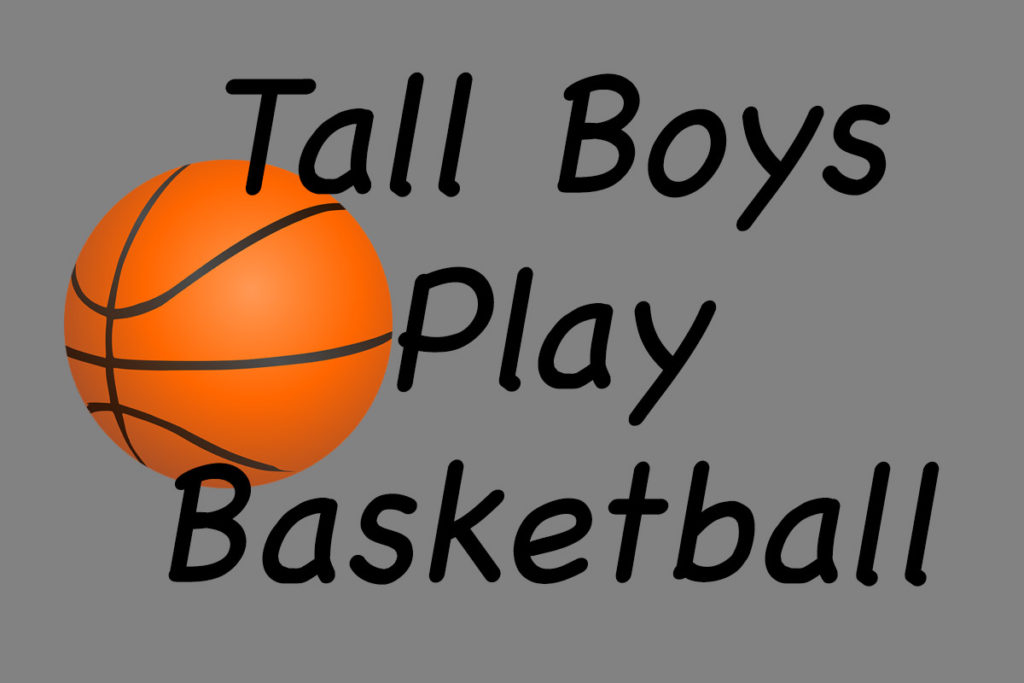Share This Short Story
As one of the tallest boys in seventh grade, people who did not know me assumed I played basketball. People who knew me laughed at the thought considering I have the natural grace of a boulder crashing down a mountain during an avalanche.
Shortly after the start of junior high school, the school’s basketball coach visited our gym class to scout for new talent to recruit for his team. Scanning the gymnasium full of gangly 12 and 13 year olds, he spied my height and drifted over to watch.
After the class, he approached several of the more promising boys and talked to them about trying out. For me, the conversation was a little different.
“Son, I think you have potential, but, I don’t think you are ready to try out for the team this year. Most of the team is older and more experienced, so I have only a couple of slots for seventh graders. I would suggest you work on a few things. If they improve, maybe we can see about next year.”
Hopeful, I listened as he listed my areas for improvement. “First, your dribbling skills. You need stronger hands, so do some dribbling drills every day to build them up.” He demonstrated by dribbling the ball in a figure eight pattern around his legs.
“And your passing is weak. Practice daily making clean, sharp, forceful passes.” He fired the ball to my chest and it bounced off and back into his hands.
“Shooting is a challenge. You don’t have much range. Start up close – just a few feet away – and take 100 shots a day.” He accompanied the instruction with a flicking motion with his hands.
“Defense just isn’t really there. You have height, but don’t take up your space on defense. Spread out like this.” He crouched down and spread his arms.
“Not to mention you are getting beaten down the court on every play. You have to run sprints to improve your speed. And you footwork is just too slow. You don’t spin fast enough and get out maneuvered.”
He concluded, “But, like I said, you have potential, so work on those things and we will see next year.”
As he walked away, I realized that he had said I had the natural talent to play basketball – except for dribbling, passing, shooting, defense, speed and quickness.
In other words, my basketball potential was that I was tall for a seventh grader, but lacked a key ingredient – talent.
In the movies, the protagonist embraces the criticism, works hard, and overcomes. And, yes, a year later, I was a starting center.
Not for the school team. A church team. In a county recreational league. But I was the starting center, a role I had landed after a rigorous try-out.
Rigorous meaning I was the tallest kid. In a really small church. We had to recruit kids from other churches just to fill out a roster. So I was tall and the right denomination. Whatever works.
We had a successful season. We had enough players show up for all 14 games so we never had to forfeit. Our definition of success might have been a little low. We didn’t win any games, but we showed up!
Postseason action was never a question.
The season included a second classic moment of coaching that reaffirmed the first coach’s assessment of my basketball skills.
We were in a close game, down only 20 points or so. For us, that was close.
Our coach called a timeout and we huddled around him. He mapped out a play that no one was expecting. Not even anyone on my team.
The ball was coming to me.
The coach, with his astute knowledge of the game, had detected that the other team had decided there was no reason to defend me outside of about ten feet of the basket. Nor were they defending me within ten feet of the basket.
His plan? I would walk right underneath the basket unmolested by the other team’s defense, our guard would pass me the ball, and I would shoot from two feet away. Assuming I caught the ball, he calculated the play had a 50 percent chance of success. We would cut their lead to 18 points. From there, we would only have to double our score while holding them scoreless . . . and we would tie the game.
Tension mounted in the huddle. My teammates were incredulous.
Back to the movies.
In one of the many great scenes of the movie “Hoosiers,” Coach Norman Dale (Gene Hackman) gathers his team in a huddle during a time-out. One of his players, Ollie (Wade Schenck), is on the free throw line for a game winning point. To calm his nerves, Coach Dale says, “After Ollie makes his second shot…” He turns and addresses Ollie, “and you will make your second shot.” A classic moment of a coach supporting a nervous player’s confidence.
But this was no Hoosiers moment. I didn’t play for Coach Dale. His instructions?
“Whatever you do, don’t dribble.”
Subscribe to the Random Musings
Want to be sure never to miss a Musing? Subscribers will be notified when I post a random observations on life or a short story. The email is absolutely FREE and you my unsubscribe at any time.


❤️????